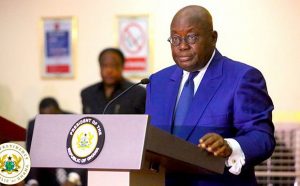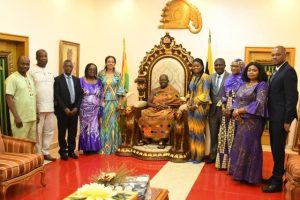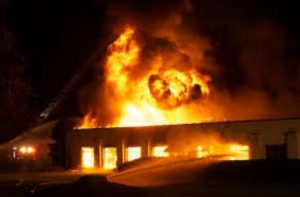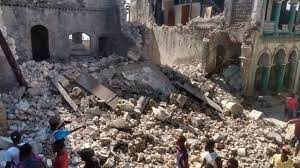The Nuclear Power Institute (NPI) says it is awaiting President Nana Akufo-Addo’s announcement of the inclusion of nuclear power in the country’s energy mix for the implementation of the next phase of the programme.
The announcement, technically known as the National Position, is one of the key 19 infrastructure issues requiring specific actions during each of the three phases of the programme.
The infrastructure issues are: National position, Nuclear safety, Management, Funding and financing, Legal framework, Safeguards, Regulatory framework, Human resource development, Radiation protection, and Electrical grid.
The rest are: Stakeholder involvement, Site, and supporting facilities, Environmental protection, Emergency planning, Nuclear security, Nuclear fuel cycle, Radioactive waste management, Industrial involvement, and Procurement.
The completion of actions for a phase, represents the achievement of the associated milestone, clearing the way for other activities towards connecting nuclear power to the national grid by 2030.
Dr Seth Kofi Debrah, the Director of the Institute, told the Ghana News Agency in an interview that all issues required appropriate attention, making President Nana Akufo-Addo’s announcement very crucial and signifying the country’s acceptance and readiness to go nuclear.
He said already, phase one of the activities, which included human resource and pre-feasibility study, the establishment of legal and regulatory frameworks to pave the way for the declaration, had been completed.
The Director said preparatory work for the contracting and construction of a nuclear power plant would begin after the announcement.
Dr Debrah said Nuclear Power Ghana (NPG) was assessing responses of five vendors for collaboration under the Nuclear Power Programme and would be followed by activities to contract, license, and construct the first nuclear power plant.
He explained that the vendors were from the United States, Russia, Canada, and South Korea.
Dr Debrah noted that some of the vendors had proposed financing mechanisms, including build, operate, and transfer, public-private partnerships, and a loan system.
The four candidate sites, which met requirements such as closeness to a water body, security, safety, and population density, had been identified.
The Director said all the candidate sites were close to large water bodies because, “high quality steam makes the turbines run to supply electricity to the network through the alternator.
“Once the quality of the steam decreases, it cannot be of use for electricity production anymore. It has to be cooled down till it turns back to water that can be reused to produce high quality steam. This cooling takes place in the condenser and requires large quantities of cooling-water”.
Experts say Ghana has exhausted its hydro base as an energy source and looking to explore other clean options such as nuclear power that has a long- term energy security, devoid of environmental challenges that compromise the ability of future generations to meet their own needs.
NPG has, therefore, been mandated to build Ghana’s first Nuclear Power Plant to produce affordable electricity in a safe and environmentally friendly manner for socio-economic development.
The mandate, underpinned by provisions in Sustainable Development Goals seven and 13, is critical and has implications for the achievement of the nation’s economic and industrial development goals.
The Nuclear Projects will help the country achieve its updated ten-year, Nationally Determined Contributions under the Paris Agreement, which aims at reducing 64 million tonnes of carbon dioxide equivalent (MtCO).







